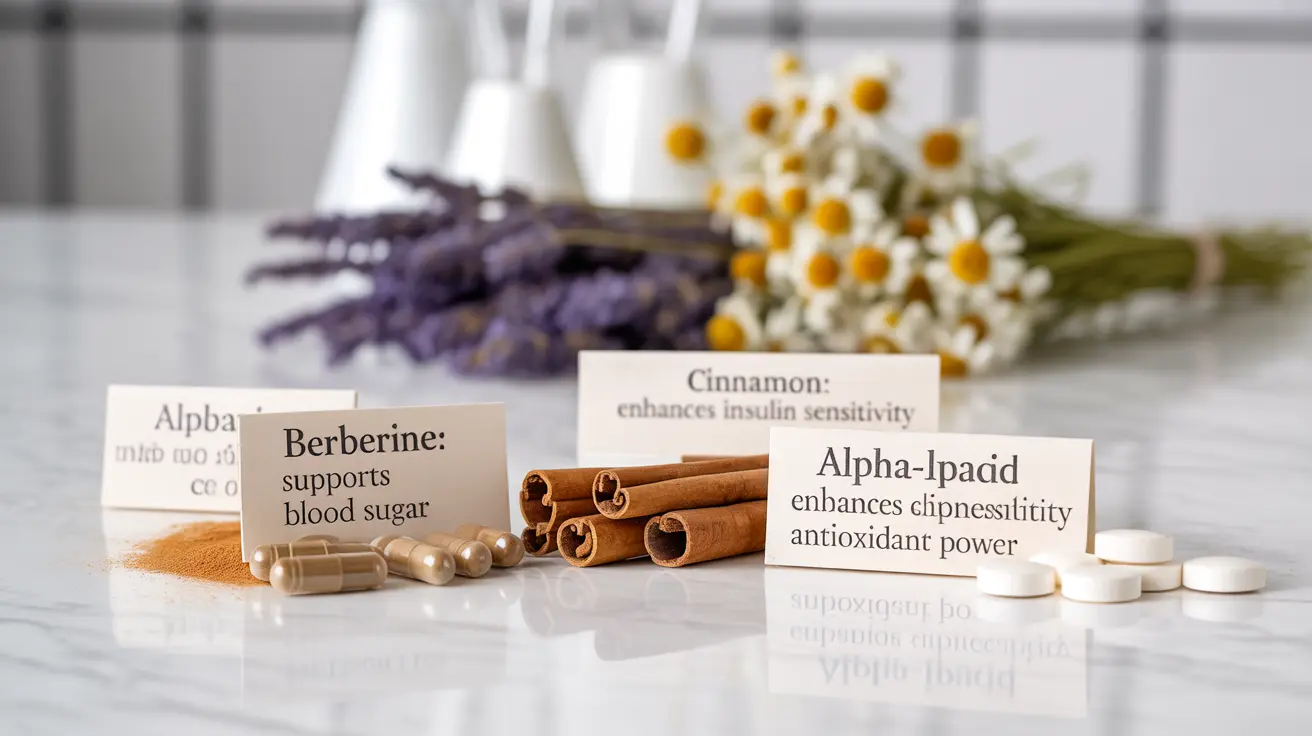Managing diabetes effectively often leads people to explore natural supplements as complementary support for their treatment plan. While various natural supplements show promise in helping to control blood sugar levels, it's crucial to understand their proper use, benefits, and limitations alongside conventional diabetes management.
This comprehensive guide examines the most well-researched natural supplements for diabetes management, their potential benefits, and important safety considerations you need to know before incorporating them into your diabetes care routine.
Understanding Natural Supplements for Diabetes Management
Natural supplements for diabetes typically include herbs, vitamins, minerals, and other botanical compounds that may help support healthy blood sugar levels. While these supplements can't cure diabetes, some have shown promising results in scientific studies for supporting overall diabetes management.
Most Effective Natural Supplements for Blood Sugar Control
Berberine
Berberine, derived from various plants, has shown significant potential in blood sugar management. Research suggests it may help improve insulin sensitivity and reduce glucose production in the liver.
Cinnamon
This common spice has demonstrated the ability to help lower blood sugar levels and improve insulin sensitivity. Ceylon cinnamon, in particular, is considered the safest and most effective variety for diabetes management.
Alpha-Lipoic Acid
This powerful antioxidant may help improve insulin sensitivity and reduce diabetes-related nerve pain. It's naturally produced in the body but can also be taken as a supplement.
Safety Considerations and Drug Interactions
While natural supplements can offer benefits, they require careful consideration and monitoring:
- Always consult healthcare providers before starting any supplement
- Monitor blood sugar levels closely when using supplements
- Be aware of potential interactions with diabetes medications
- Choose high-quality supplements from reputable manufacturers
- Follow recommended dosages strictly
Integrating Supplements with Conventional Treatment
Natural supplements should complement, not replace, prescribed diabetes medications. A successful approach typically includes:
- Maintaining prescribed medication schedules
- Following a diabetes-friendly diet
- Regular physical activity
- Blood sugar monitoring
- Professional medical supervision
Frequently Asked Questions
What are the most effective natural supplements for helping to control blood sugar in diabetes?
The most effective natural supplements for blood sugar control include berberine, cinnamon, alpha-lipoic acid, and chromium. However, effectiveness can vary among individuals, and these supplements should always be used under medical supervision.
Are cinnamon and berberine safe to use together for managing type 2 diabetes?
While cinnamon and berberine can generally be used together, it's essential to consult your healthcare provider first. Both supplements can affect blood sugar levels, and their combined use should be carefully monitored to prevent potential hypoglycemia.
Can natural diabetes supplements replace my prescribed medications or cure diabetes?
No, natural supplements cannot cure diabetes or replace prescribed medications. They should be viewed as complementary support to your existing treatment plan, which includes proper medication, diet, and exercise.
What potential side effects and drug interactions should I be aware of when taking herbal supplements for diabetes?
Common side effects may include digestive issues, headaches, and potential interactions with diabetes medications that could lead to dangerous blood sugar fluctuations. Some supplements may also interact with blood thinners and other medications.
How should I discuss using natural supplements with my healthcare provider to safely manage my diabetes?
Bring a list of specific supplements you're interested in, along with any research supporting their use. Share your current medications and treatment plan, and be prepared to discuss your goals for incorporating supplements into your diabetes management routine.
Remember that successful diabetes management requires a comprehensive approach, and natural supplements should be just one part of your overall strategy under professional medical guidance.




